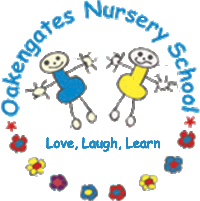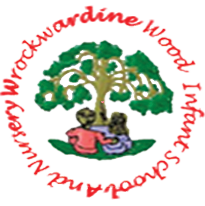Curriculum
Our curriculum intent is to inspire and motivate every child, so they engage with their learning and make excellent progress. Each child is valued and understood as an individual; academically, socially, emotionally and as a spiritual being.
We never forget that a happy childhood is the right of every child. We want to ignite a child's natural curiosity through play and first-hand exploration. Learning about the fascinating and diverse world in which they live is a crucial part of a child’s development.
Our curriculum has a strong emphasis on spoken language to develop children cognitively, socially, and linguistically. The quality and variety of language that children hear and speak are key factors to a child developing the vocabulary they need when reasoning, making a justification, argument, or proof of their ideas.
We believe children should be given time to develop their ideas, ask questions, problem solve and take risks which will lead to enhanced confidence critical thinking and problem-solving skills. This approach will help them to recognise and articulate their strengths which in turn will prepare them for the future.
Our children are at the very beginning of their lifelong learning journey, and we strongly believe that the curriculum we offer them should enable them to communicate their thoughts and ideas with others clearly, make links between ideas and develop strategies for doing things.
Spiritual, Moral, Social & Cultural development is embedded into all areas of our curriculum. Through our curriculum children learn to behave well, cooperate, and share with each other. They make friends, respect each other's differences, and build their understanding of different families, people, and communities beyond their immediate experience.
Children also learn to behave in ways that are safe, understand how to stay safe and show that they feel safe. As part of a whole school approach, we have developed a bespoke curriculum called 'Keeping Ourselves Happy, Healthy and Safe.' This curriculum develops the qualities and attributes children need to thrive as individuals, family members and members of society.
Our central aim is to provide every child with educational experiences and opportunities that will enable every child to discover and fulfil their own potential.
Below sets out all areas of our curriculum, policies and planning.
Early Years Foundation Stage
Children in our Nursery follow the Early Years Foundation Stage Curriculum.
The areas of learning are as follows:
Prime areas
- Personal, Social and Emotional Development
- Communication and Language
- Physical Development
Specific areas
- Literacy
- Mathematics
- Understanding the World
- Expressive Arts and Design
Please click on the links to read our Early Years and Foundation Stage Policy and our Context for Learning (see below)
We believe that children’s learning must respond to their current and future personal needs, their future career needs and the needs of the varied societies and cultural groups in which they are likely to play a part.
Our curriculum helps children to:
- learn the subject knowledge, skills and understanding they need to become aware of the world around them;
- develop the personal skills of enquiry, adaptability, resilience and morality, communication, thoughtfulness, co-operation and respect so they can take an active part in the world throughout their lives.
Our curriculum helps children to see:
- how they can get along and how they can disagree in a way that is helpful;
- how they can be proud of their own national heritage and culture and, at the same time, deeply respectful of the heritage and culture of others;
- how they can achieve more by coming together than staying apart
The nursery curriculum is coherently planned and sequenced towards sufficient knowledge and skills for future learning. Each half term we focus on a particular theme based on children’s needs and interests as a vehicle for learning across the curriculum.
We encourage children to use their first-hand experiences to explore, investigate and learn about the world around them. Through research, testing, analysis and evaluation children are given opportunities to use and apply their knowledge and skills to real situations. In this way children become aware of the links between curriculum areas.
Communication and Language
We understand and believe that Communication is fundamental to children’s development; children need to be able to understand and be understood. Communication is the foundation of relationships and is essential for learning, play and social interaction.
The development of children’s Listening and Attention, Understanding and Speaking is embedded into our curriculum and carefully planned and sequenced to the children’s individual needs. Our curriculum involves giving children opportunities to experience a rich language environment; to develop their confidence and skills in expressing themselves; and to speak and listen in a range of situations.
Please see more information below about Oakengates Nursery being a 'Communication Friendly Setting.'
Physical development
Our curriculum provides opportunities for children to be active and interactive; and to develop their co-ordination, control, and movement. Children are taught the importance of physical activity, to make healthy choices in relation to food, and other ways to keep healthy, such keeping clean, getting enough sleep and drinking water. Children of pre-school age who are capable of walking unaided should be physically active daily for at least 180 minutes. (Guidance from The Chief Medical Officer) This is spread throughout the day and achieved through a planned, active and creative curriculum.
Early Reading
Children are encouraged to develop a love of books and joy of reading through daily story times of carefully selected texts that encourage the children to join in. This gives the children a bank of familiar stories they know well. Some examples of repetitive texts that our children love: ‘We are Going on a Bear Hunt,’ ‘Brown Bear, Brown Bear,’ ‘Walking through the Jungle,’ ‘Shark in the Park’ and ‘Don’t Forget the Bacon!’
A much-loved reading programme called Oxford Reading Tree is used in nursery which gives children access to books that allow them to apply their phonic knowledge. Each level of books provides progression in early reading by making small steps to help every child progress.
‘Floppy’s Phonics’ sounds and letters programme is used to support children to ‘tune into sounds’ and teach them the reading skills they need to enjoy as many stories as possible.
During induction and termly reading workshops, parents learn about the school’s approach to the teaching of reading and writing.
Children have a daily opportunity to take story books home to share with parents. These sharing books can be used as a bedtime story. Children in preschool also bring home an Oxford Reading Tree book each week. Parents are invited to comment on their child's progress through their child’s individual reading record. Guidance in the form of a comment bank is provided to help support parents what to write.
At nursery we promote the importance of the bedtime story as it:
- Fosters a lifelong love of books
- Provides quality time together that strengthens family relationships
- Helps children to explore new feelings, new words, new experiences and new knowledge
- Increases academic ability
Having a story and cuddles together with parents, grandparents, carers or siblings to share an adventure or talk about a story before happily drifting off to sleep is an idyllic image that should be every child's reality.
Writing and Early Mark Making - Our approach to writing builds confidence and encourages children to think of themselves as writers from very early on. The structure of our language is important and there is greater emphasis on this as children develop.
Our curriculum shows that:
- Mark-making is not just about early writing; it is a sensory and physical experience which can be enjoyed by all ages and abilities.
- As well as early writing, mark-making can develop into mathematical representation and creative expression.
- Mark-making in all forms needs to be valued, encouraged and discussed.
- mark-making you can contribute to all the areas of learning and development and not just physical development and writing.
Mathematics Our planning ensures that children have opportunities to develop number fluency, reasoning and calculating skills through practical activities and problem solving. We also encourage children to develop and use mathematical language in number, shape, space, measures.
Understanding the World We guide children to make sense of their physical world and their community through opportunities to explore, observe and find out about people, places, technology and the environment
Expressive Arts and Design enables children to explore and play with a wide range of media and materials, as well as providing opportunities and encouragement for sharing their thoughts, ideas and feelings through a variety of activities in art, music, movement, dance, role-play, and design and technology
Enhancing our Curriculum through Woodwork
Here at Oakengates Nursery School we have started to develop our curriculum through woodwork with our preschool children. This has positive outcomes for our children which provides fantastic knowledge and skills for future learning and employment.
Woodwork is one of those special activities that truly engages children and encompasses all areas of learning and development. Children really respond to the challenge and very much enjoy working with wood and real tools. It encompasses so much learning –children develop their physical coordination, fine and gross motor skill and hand eye coordination; they learn basic mathematical concepts, such as shape and measure and develop their mathematical thinking skills; they develop their understanding of the world – seeing tools as basic technology, understanding wood as a material and observing many scientific concepts such as the rotation of a wheel, levering nails back up or using a drill to drill holes; They develop their language with new vocabulary, using language to talk about their ideas and to problem solve; and children can develop their mark-making and drawing to express ideas on paper and also mark on the wood itself.
There are two areas where woodwork really excels. Firstly it develops children’s self-esteem and confidence – it is really empowering for children to create with real tools and they take great delight in their achievements – it really develops a can-do spirit, and secondly it develops children’s thinking skills –their creative and critical thinking as they problem solve and express their imaginations with wood.
Please click below to find out more about the curriculum
EYFS Statutory Framework (2024)
Development Matters (Revised 2023)
What to expect in the Early Years Foundation Stage - A guide for parents

